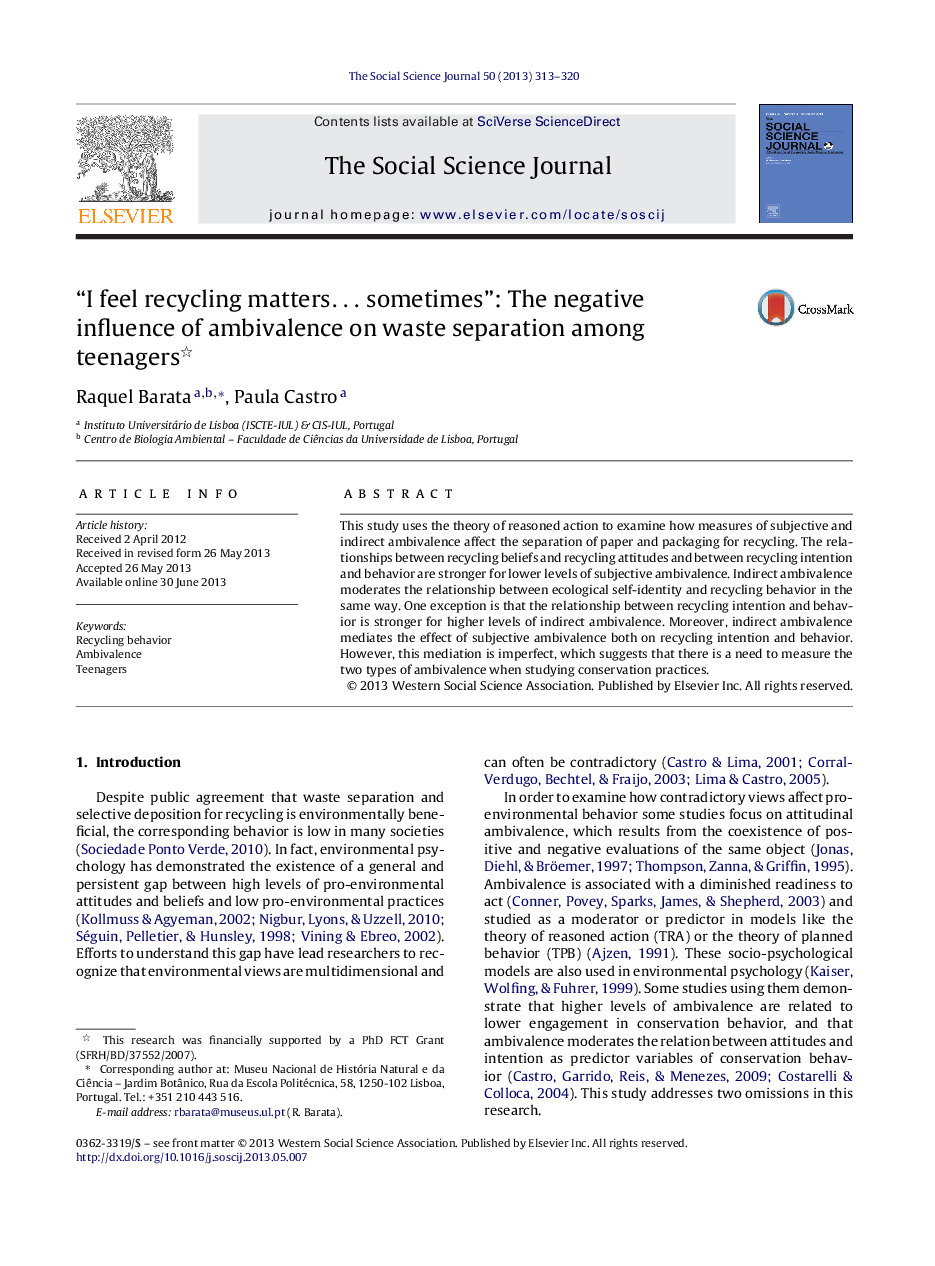| Article ID | Journal | Published Year | Pages | File Type |
|---|---|---|---|---|
| 140198 | The Social Science Journal | 2013 | 8 Pages |
•We examined the influence of subjective and indirect ambivalence on the recycling practice among teenagers.•Subjective ambivalence weakens the relationships between recycling beliefs and recycling attitudes and between intention and behavior.•Indirect ambivalence influences the relationship between recycling intention and behavior and between ecological self-identity and behavior.•Indirect ambivalence mediates (imperfectly) the effect of subjective ambivalence both on the recycling intention and behavior.•Initiatives to promote recycling should reduce teenagers’ ambivalence and boost recycling beliefs and ecological self-identity.
This study uses the theory of reasoned action to examine how measures of subjective and indirect ambivalence affect the separation of paper and packaging for recycling. The relationships between recycling beliefs and recycling attitudes and between recycling intention and behavior are stronger for lower levels of subjective ambivalence. Indirect ambivalence moderates the relationship between ecological self-identity and recycling behavior in the same way. One exception is that the relationship between recycling intention and behavior is stronger for higher levels of indirect ambivalence. Moreover, indirect ambivalence mediates the effect of subjective ambivalence both on recycling intention and behavior. However, this mediation is imperfect, which suggests that there is a need to measure the two types of ambivalence when studying conservation practices.
